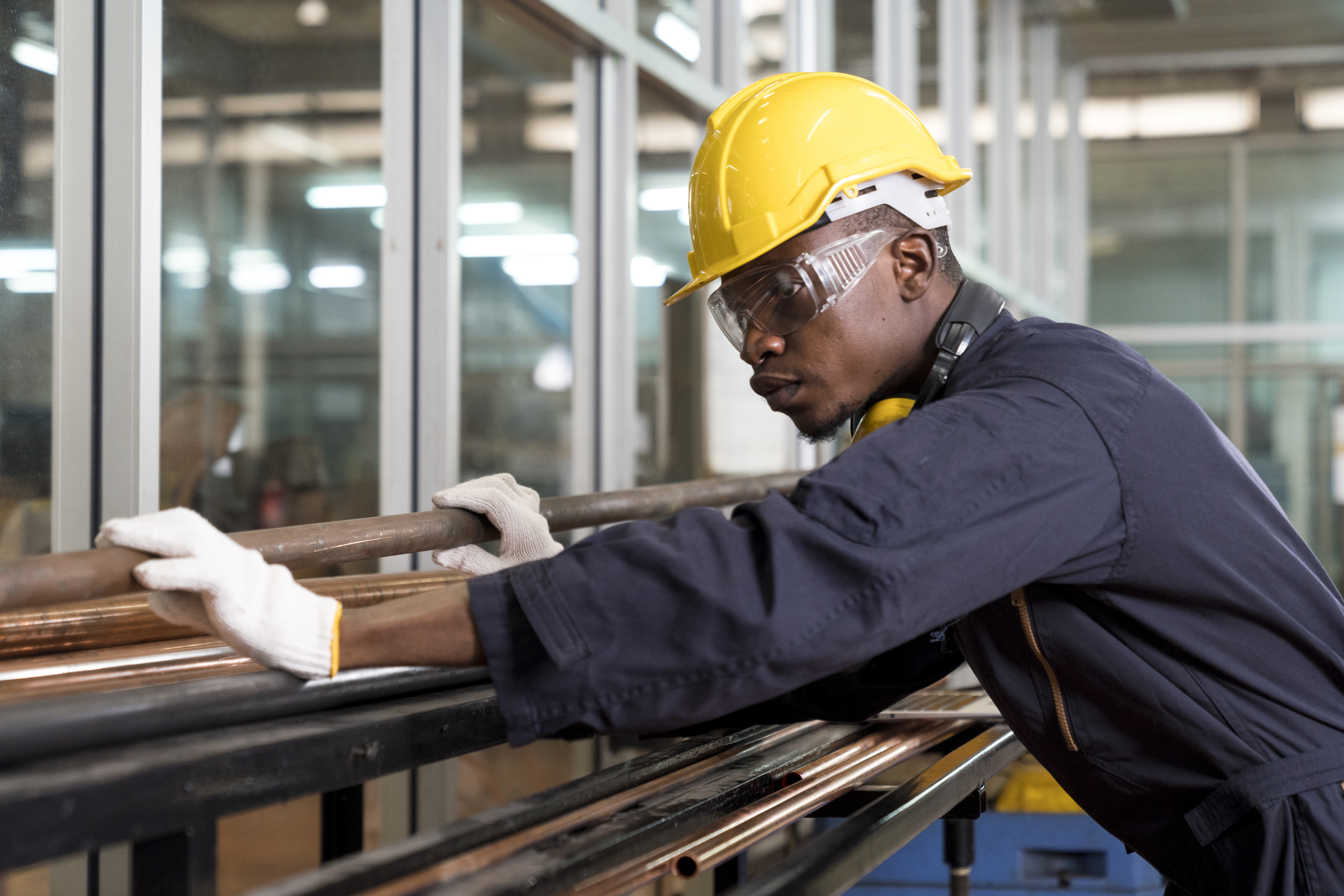The steel industry is a cornerstone of our modern economy and a major source of health-harming pollution. Emerging technologies offer a path to producing steel with dramatic reductions in climate pollution and health risks to local communities, and one encouraging new project is coming to Ohio.
Steel mills in the United States currently smelt iron using refined coal (i.e., coke), which produces both toxic and carbon emissions. The steel mill owned by Cleveland Cliffs in Middletown, OH is one of these facilities. As a consequence of the pollution from the steel mill, the community around Middletown faces higher risks of contracting cancer. The community is even at greater risk of cancer than peers adjacent to other steel mills because local pollution is exacerbated by the production of coke, used by Middletown Works, in an adjacent facility.
The good news is that the Department of Energy (DOE) recently selected the Middletown Works steel mill as a potential recipient of up to $500 million in grants to install furnaces that could produce iron for steelmaking without using coal. The adoption of this new “green steel” technology at Middletown Works promises to reduce its onsite greenhouse gas emissions by a million metric tons per year, which were 3.2 million metric tons of carbon dioxide equivalent in 2022.
A Grant for Hydrogen-based Steel at Middletown Works
A facility in Sweden successfully piloted an alternative ironmaking technology that substitutes coal for hydrogen, which reduces both toxic and carbon releases during the smelting process. Cleveland Cliffs looks to invest the DOE grant by adopting this technology at Middletown Works, retiring the existing coke-based furnace.
However, Cleveland Cliffs has not yet secured a reliable source of hydrogen — green or otherwise — so the furnace will likely rely on methane for the time being. The use of methane gas will reduce onsite greenhouse gas emissions from ironmaking compared to sticking with the coal-dependent current process, but it misses the opportunity to make more significant emissions cuts with green hydrogen. While health impacts from coal and coke are greater than those from methane, the increased gas demand will be felt by communities that are adjacent to the wells and refining facilities, too.
Notably, the DOE is funding a Swedish company to construct a comparable ironmaking furnace in Mississippi that uses the same technology. This other project, however, is committed to using hydrogen from the start and has already secured a supply agreement with a sustainable hydrogen producer.
In its first DOE-hosted public briefing on the prospective project in April 2024, Cleveland Cliffs emphasized the anticipated economic benefits that the investment would bring to the local community. The company estimated that the project would not only preserve the site’s existing 2,500 jobs but also add 170 additional union jobs. In addition, the facility is expected to employ 1,200 construction workers.
Unaddressed concerns around the facility
Representatives from Cleveland Cliffs highlighted that the new technology would reduce air and water pollution. In response to concerns about accurately monitoring pollution releases from Middletown Works, the company defended its compliance with the existing permitting regime. However, the Ohio Environmental Protection Agency has, in the past, refused to fully document complaints made by the community regarding excessive air pollution from the facility. Cleveland Cliffs would do well to provide more detailed information about current pollution releases and projected air and water quality benefits to community members to build support for the project.
While the project’s focus is on the iron-smelting furnace at Middletown Works, Cleveland Cliffs buys coke from a nearby facility that is another major polluter in the community. Although the new furnace installed at Middletown Works will not use coke, the company’s contract with the cokemaker will continue until 2032, as other Cleveland Cliffs steel mills continue to rely on coke from this supplier. Therefore, the company enables continued pollution that harms local community health. To align itself with the intention of DOE’s Industrial Demonstration Program, Cleveland Cliffs should publicly share how a successful demonstration will guide its transition of other facilities reliant on coke, as well as what constitutes success.
On a similar note, the facility will demand more electricity to power the new furnaces – and will require even more energy if it intends to establish onsite hydrogen-making capacity. Without a plan to secure a source of renewable energy, the company may either face challenges adopting hydrogen or increase its reliance on fossil fuel-based power generation with health consequences for communities near those sources.
Middletown Works is positioned to lead an important transition in the steel industry, pioneering a technology that is not yet available in North America but essential to curbing climate change. However, the facility is a major contributor to local public health harms through both operations onsite and a business relationship with its coke supplier SunCoke Energy. Given recent history, the facility’s accountability for health-harming pollution has to go beyond compliance and collaboration with local authorities. The public commitment to reducing health harms to the local community must also include a plan to source renewable energy for the facility.
For more information, visit DOE’s Industrial Demonstrations Program page here with slides from regionally-focused briefings from the DOE.
If you would like to advocate for Community Benefits Agreements on a project in your community, please contact Yong Kwon at yong.kwon@sierraclub.org.
